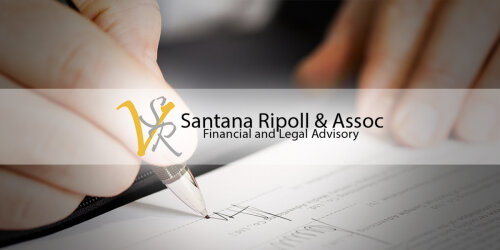Best Transportation Lawyers in Puerto Plata
Share your needs with us, get contacted by law firms.
Free. Takes 2 min.
List of the best lawyers in Puerto Plata, Dominican Republic
About Transportation Law in Puerto Plata, Dominican Republic
Puerto Plata, a key tourist and economic hub on the northern coast of the Dominican Republic, has a diverse and vibrant transportation sector that includes roads, ports, and airports. Transportation law here encompasses all legal practices related to the operation and regulation of vehicles, maritime activities, and aviation within the region. It includes city infrastructure, tourism-related transport services, public transit systems, and logistics operations that sustain the local economy. Due to its pivotal role in tourism, transportation in Puerto Plata is heavily regulated to ensure safety, efficiency, and sustainability.
Why You May Need a Lawyer
There are various situations where individuals or businesses may seek legal advice concerning transportation in Puerto Plata:
- Involvement in vehicular accidents, which require navigating insurance claims and liability issues.
- Starting or operating a transport-related business, necessitating compliance with local business and transportation regulations.
- Disputes over contracts pertaining to transportation services or logistics.
- Safety violations that impact public or private transport operations.
- Real estate or zoning issues related to transportation infrastructure development.
- Immigration matters that affect transportation workers.
Local Laws Overview
Transportation law in Puerto Plata focuses on several key areas:
- Traffic Regulations: These include road safety laws, vehicle registration criteria, and driver licensing that align with national standards.
- Public Transport: Licensing for public transport services ensures compliance with safety and service standards.
- Maritime Operations: Puerto Plata's port activities are governed by maritime regulations that manage shipping lanes, freight handling, and ecological protection.
- Aviation: The Gregorio Luperón International Airport adheres to both national and international aviation safety and operation standards.
- Commercial Transportation: Businesses involved in logistics must comply with trade and customs laws concerning the movement of goods.
Frequently Asked Questions
What are the primary traffic regulations in Puerto Plata?
Primary traffic regulations include speed limits, seat belt mandates, prohibited use of mobile devices while driving, and stringent DUI laws to ensure road safety.
How do I obtain a driver's license in Puerto Plata?
To obtain a driver's license, individuals must meet age requirements, pass a driving test, provide necessary identification, and complete a medical examination to assure fitness to drive.
Are there specific laws for taxi and rideshare drivers?
Yes, taxi and rideshare drivers must possess a special license and insurance policy, and comply with safety checks as mandated by the local transport authority.
What steps should I take if I'm in a car accident?
Ensure safety first, report the accident to the police, exchange information with other parties involved, document the scene, and notify your insurance company.
Can foreigners operate a vehicle in Puerto Plata?
Foreigners can drive with an international driving permit (IDP) or their home country’s valid driver license for a limited period, typically 90 days.
How are public transport services regulated?
Local government oversees permits for public transport operators, ensuring safety, service quality, and adherence to established routes and schedules.
What permits are required for commercial trucking?
Commercial vehicles must comply with registration, insurance, and safety inspection requirements, and drivers often need a specific commercial license.
How does one address maritime environmental violations?
Such issues are managed by contacting the local maritime authority or environmental protection agency, which oversees violations and remediation efforts.
What should I know about aviation law if I'm flying into Puerto Plata?
Aviation law covers customs regulations, baggage rules, and adherence to safety protocols set by the International Civil Aviation Organization (ICAO).
How can I challenge a traffic violation ticket?
Traffic violations can be contested in local traffic courts, where you may present evidence and possibly engage a legal professional to support your case.
Additional Resources
For further assistance, consider contacting:
- Dirección General de Impuestos Internos (DGII): For vehicle registration and road tax queries.
- Instituto Nacional de Tránsito y Transporte Terrestre (INTRANT): For concerns regarding driver licensing and traffic regulations.
- Autoridad Portuaria Dominicana: For maritime law and port operations guidance.
- Aeropuertos Dominicanos Siglo XXI (Aerodom): For aviation law matters and airport operations.
Next Steps
If you require legal assistance in the field of transportation in Puerto Plata, Dominican Republic, consider the following steps:
- Identify the specific nature of your legal concern, be it personal, business, or regulatory.
- Research and consult with local attorneys who specialize in transportation law.
- Gather any relevant documentation or evidence related to your case before your consultation.
- Discuss potential legal strategies and outcomes with your lawyer to understand your options.
- Follow through on your attorney's guidance, whether it involves negotiation, litigation, or compliance actions.
Lawzana helps you find the best lawyers and law firms in Puerto Plata through a curated and pre-screened list of qualified legal professionals. Our platform offers rankings and detailed profiles of attorneys and law firms, allowing you to compare based on practice areas, including Transportation, experience, and client feedback.
Each profile includes a description of the firm's areas of practice, client reviews, team members and partners, year of establishment, spoken languages, office locations, contact information, social media presence, and any published articles or resources. Most firms on our platform speak English and are experienced in both local and international legal matters.
Get a quote from top-rated law firms in Puerto Plata, Dominican Republic — quickly, securely, and without unnecessary hassle.
Disclaimer:
The information provided on this page is for general informational purposes only and does not constitute legal advice. While we strive to ensure the accuracy and relevance of the content, legal information may change over time, and interpretations of the law can vary. You should always consult with a qualified legal professional for advice specific to your situation.
We disclaim all liability for actions taken or not taken based on the content of this page. If you believe any information is incorrect or outdated, please contact us, and we will review and update it where appropriate.










